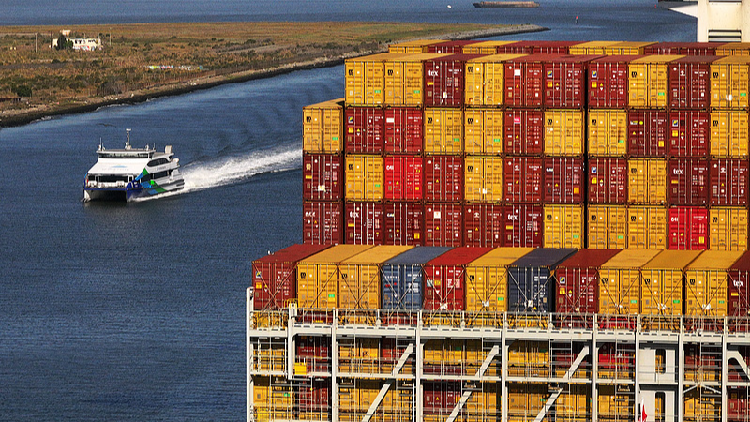U.S. Trade Court Blocks Trump’s Attempt to Impose Sweeping Tariffs
A federal court has blocked most of President Trump's sweeping import tariffs, ruling he overstepped his authority.

A U.S. federal court issued a major injunction on Wednesday, halting most of President Donald Trump's broad import tariffs from taking effect. The decision determined that the president had overstepped his authority with the imposition of sweeping global levies, delivering a critical blow to the administration's trade agenda.
The ruling comes as President Trump intensifies efforts to reshape America's trading relationships by using tariffs to pressure other governments into negotiations. For years, tariffs have been a centerpiece of his trade strategy, upending international commerce and triggering volatility in global financial markets.
The three-judge Court of International Trade called a virtual ceasefire on the president's ongoing tariff measures, including those announced as part of the so-called "Liberation Day" tariffs—a baseline 10 percent duty—and penalties targeting products from China, Mexico, and Canada, ostensibly to stem fentanyl inflows. The injunction covers most restrictions imposed since Trump took office, signaling a significant pushback against his approach.
Central to the court's rationale was the assertion that the U.S. Constitution grants Congress exclusive authority to regulate commerce. The judges found that President Trump had exceeded these limits by invoking a "national emergency" to enact broad tariffs without explicit congressional approval. The court provided a 10-day window for the White House to complete procedures to halt the tariffs.
The White House responded sharply to the court's decision, criticizing what it termed intervention by "unelected judges" in matters the administration views as national emergencies. Meanwhile, officials confirmed that an appeal is underway, challenging the legitimacy and reach of the court's judgment.
The Court of International Trade’s decisions can be challenged in higher courts, including the U.S. Court of Appeals for the Federal Circuit, and ultimately, the Supreme Court. Legal experts note that the battle is likely far from over. According to professionals specializing in international trade disputes, the president could utilize alternate administrative mechanisms or executive orders to pursue similar objectives, even if the current legal pathway is blocked. One expert observed, "This time, he used emergency economic powers, and next time, he could use other executive orders."
The case highlights broader concerns about executive overreach and the erosion of U.S. adherence to established rules governing trade policy. Critics argue that stretching presidential powers in this manner can damage the country’s reputation and undermine its influence in global affairs.
The ruling originated from lawsuits filed by several small U.S. businesses and a coalition of 13 states, both challenging the scope of Trump’s actions under the International Emergency Economic Powers Act of 1977 (IEEPA). The court clarified that IEEPA permits necessary economic sanctions during unusual threats but does not grant unbounded authority to impose tariffs on nearly all imports.
Despite the administration’s insistence that judicial oversight should be limited in such cases, the court stood firm in its interpretation, stating: "The court does not read IEEPA to confer such unbounded authority and sets aside the challenged tariffs imposed thereunder." Nonetheless, with additional legal challenges pending and the administration threatening new tariffs—such as a proposed 50 percent duty on European goods—the debate around executive power and trade enforcement appears set to continue.
Economists warn that these tariffs risk being passed on to U.S. consumers, exacerbating inflationary pressures and compelling the central bank to maintain higher interest rates, potentially destabilizing markets further. Congressional leaders, too, weighed in, with some proclaiming the court has confirmed that "these tariffs are an illegal abuse of executive power."




